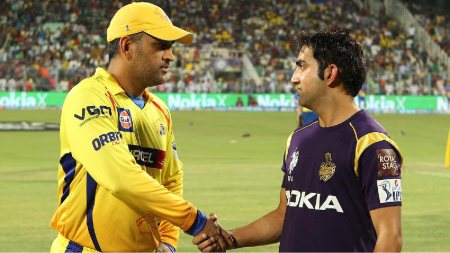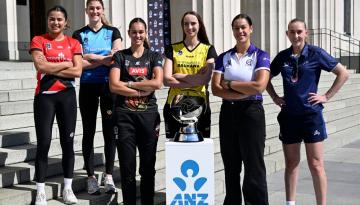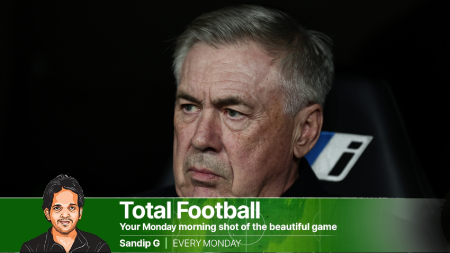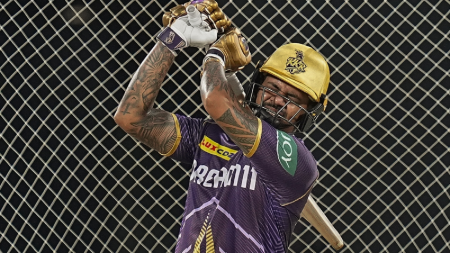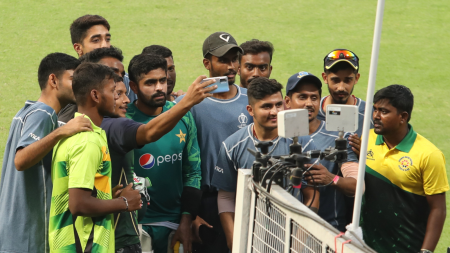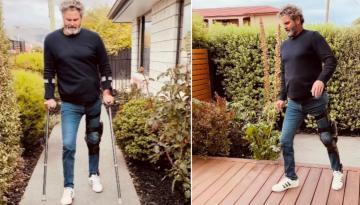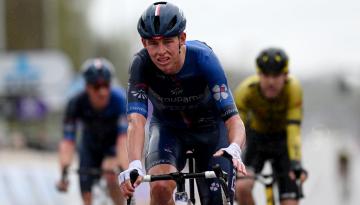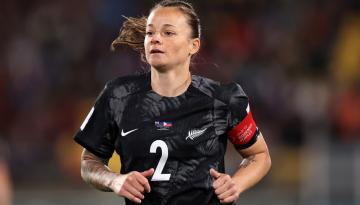Anupama Upadhyaya’s staid, clean-stroked, at times-naive badminton isn’t rated very highly and resultantly didn’t make India’s Uber Cup squad even after PV Sindhu withdrew. But you can’t deny the 19-year-old can stitch together a week of gritty skirmishes and wrack up the wins.
This last weekend she picked the Kazakhstan International Challenge, and continued the plod of India’s next batch of women’s singles shuttlers who have to work much harder than Saina Nehwal and Sindhu did, because they aren’t as strong or ably guided as those two were. She has the grit though, in the face of anguishing failures. After her National title in 2023, the step-up to international circuit has been typically labourer.

Anupama isn’t particularly tall or well-built. She’s rather lean. But for someone whose father had to hide her racquet and disallow her from playing till she started eating eggs reluctantly, she’s settled her palate nicely to munch into mutton and chicken at her training base at Guwahati, and grow some proper muscle. At the National Centre of Excellence, they run twice a week – 10 sets of 400m or 16 sets of 200m.
But it is on the air-bikes in the post-gym session that she got a general idea of the bare minimum that the likes of Saina, and Sindhu did to get to their high levels. “Our Strength and Conditioning coach got us started on airbikes for stamina, after a hard gym session. We have to cross 80 rpm and I felt like vomiting after the first few airbike sessions,” she recalls.
But she knows what Indians lack in, when they are smacked right in the face by speed and power internationally. “All of badminton is only about strength and stamina, and that’s not only about how hard the smash is. But how well you sustain till the end of a long rally and recover for the next point, plus the smashing power. Experience matters too,” says the Almora teenager.
What had stood out at the Nationals title in 2023 was not sophistry in strokes, though she’s a intelligent, patient player, not thwarted by reputation, but her endgame temperament. At the World juniors a few years ago, she was properly thrashed by a Japanese 16-year-old, and gulped down the reality check on where she stood. But it made her more determined to play the last set finishing points with more alacrity.
At Kazakhstan in the quarters against tall Devika Sihag, Anupama won 21-23, 27-25, 21-18, three wringers of sets, after she dropped the opener despite leading 20-18. “Dimaag ghuum gayaa tha,” she would say. Her head in a flux. Sihag is a star in the making, but Anupama would overturn a 14-18 deficit to drag her into the decider. In the third, she once more trailed 9-14, before levelling at 17-17, and won the mental battle in 70 minutes.
Mighty worried about her recovery for the semis, she came through 24-22, 21-16 against Japanese Sorano Yoshikawa, one amongst half a dozen Japanese juniors set to be unleashed on seniors in the coming season. A bit of Anupama’s chutzpah comes through when she says, “Maine usko haraaya, aur socha, hyin, yeh world junior medallist hai?” (After defeating her I thought, she is a world junior medallist?) During the match, she wasn’t feeling this cocky or confident though till she made it 14-14.
The Japanese can frustrate on slow courts with their toss/drop rallies. “But once you get a hang of their game, and tire them out, then it’s easy to extract errors out of them,” she says gleefully.
In the finals, playing Uber Cup-bound Isharani Baruah, Anupama was up against a close friend she’s known since u15s.
Baruah is an exciting talent, because she picks some unbelievable shuttles and her jump drops and smashes are deceptive, and it’s an almighty headache deciphering if she’s going for a toss or a drop because she’s perennially bubbling around. So how did she feel after picking the title? “Body was sore,” Anupama says with a grump.
“I wasn’t sad about not being picked for the Uber Cup. Next year, there will be the Sudirman Cup, so lots of chances. But I myself have to improve my ranking to Top 50 at least for them to consider me. I took the omission in a good way,” she says.
With Anmol Kharb and Tanvi Sharma bagging all the headlines of hope, is the pressure cranking up at age 19 already? “Anmol’s wins at the Asian team were inspiring and there’s healthy competition. But no pressure as such. Sometimes it’s not your day, but we have to stick to the process,” she says, having managed to beat the Japanese who took out Anmol in quarters. Winning a higher percentage of close matches is a positive this year.
At Guwahati, coach Park Tae Sang is working on Anupama’s tactics and netplay – sharpening the blunt drops, and Sachin Rana is tasked with propping her weaker forehand defense. Malaysian coach Sankar is looking at the all-round development, and she hopes it can amount to something. Titles are scarce in women’s singles, and the gap with the top two names and their achievement humongous. Anupama knows she’s on the long-looping road to success, but what else is there to do, once she’s set her mind on this.
Disclaimer: The copyright of this article belongs to the original author. Reposting this article is solely for the purpose of information dissemination and does not constitute any investment advice. If there is any infringement, please contact us immediately. We will make corrections or deletions as necessary. Thank you.
